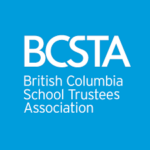Letter to the Editor: Some Pitfalls of Direct Democracy
Dear Editor,
Andre Carrel, former City of Rossland administrator, apparently has a personal bone to pick with Rossland, which is reflected in his mean spirited letter (and which may reflect his relationship with a previous Rossland council ). This might also explain why he feels so compelled to weigh in on an election which does not directly affect him.
As a rebuttal to his accusations of secretive decision making (which others in Rossland have made as well), I do not believe that the current council has been secretive, arrogant or uncommunicative. This is well evidenced by the many, many public meetings and processes which the City engaged in over the last two years, far more than anywhere else in the West Kootenays, including Nelson which was undergoing OCP review and development controversy.
We have all heard the criticisms from some who feel slighted by decisions council made, and who also subsequently resorted to making such unfair, and sometimes just plain nasty, accusations. The fact that decisions were not made in one’s favour does not mean there was not due process or that one was unheard.
As for referendums I do not believe decision by referendum serves citizens and communities best but instead, that there are other ways for elected representatives to seek out information, and understand the interest and opinions of the various stakeholders and the public to guide their decisions.
Some of the problems with direct democracy (or “Initiative and Referendum” as it is seen in various forms in some American states)
1. It is vulnerable to domination by the loudest, most organized and most well funded, to the detriment of the rest of the constituents. This has played out dramatically in California with Proposition 13, passed though the Initiative (i.e. referendum) process in 1978. Proposition 13 was passed and has continued support because it was/is led by a well funded, well organized anti-tax lobby. Since then California public schools, which in the 1960s had been ranked among the best nationally in student achievement, have fallen to 48th in many surveys of student achievement (private education is not affected so the legislation detrimentally affects the most vulnerable kids and families). Public libraries have seen a decrease in funding from cities and many closed subsequent to the legislation being enacted. From my perspective the results of Proposition 13 have not served the greater good or the longer term. “There is no question it ought to be repealed because it
has been disastrous for California,” said George Akerlof, a Nobel laureate economist at UC Berkeley.
2. It allows governments to abdicate their responsibilities when it comes to controversial issues.
3. It can be expensive and unwieldy as well as unnecessarily divisive.
We elect our representatives to become well informed about issues which they are responsible for, to see all sides of an argument, to take the long-term and strategic (i.e. important) view, to listen and then, to make wise and reasonable decisions. If they do not do so, then I can vote accordingly every three years. I do not believe the average citizen has the time or the interest to do the same and that is why we have elected representatives. This in no way prevents a citizen(s) from making their views known in a wide variety of ways, that are protected by law. Nor does it compromise the opportunity for healthy discussion and debate of issues.
As for the position of mayor, I am not advocating for either candidate (each of whom has strengths) as Mr. Carrel felt compelled to do, but I hope people will consider and make their own election decision thoughtfully, and subsequently engage and communicate with less rancor and ill-will then Mr. Carrel demonstrates.
Kelvin Saldern,
Rossland





















